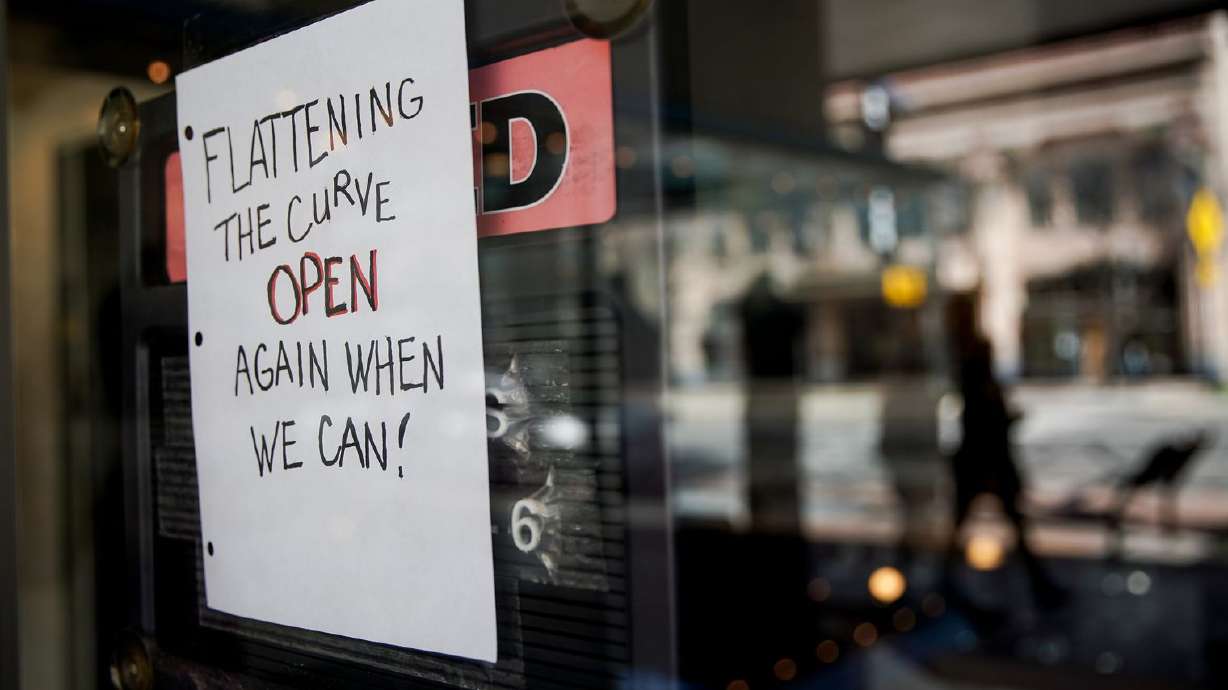Estimated read time: 3-4 minutes
This archived news story is available only for your personal, non-commercial use. Information in the story may be outdated or superseded by additional information. Reading or replaying the story in its archived form does not constitute a republication of the story.
SALT LAKE CITY — For many Utah small businesses enduring the economic crisis brought on by the coronavirus pandemic, their biggest hope for survival hinged on the passage of a new fiscal stimulus package developed in Congress directed at stemming the tide of financial losses being heaped on the national economy in the wake of the COVID-19 outbreak.
Last month, Congress passed the $2.2 trillion Coronavirus Aid, Relief and Economic Security Act, or CARES Act, aimed at providing assistance to businesses and citizens during the COVID-19 crisis. The package also extended unemployment benefits to include independent contractors, such as gig economy workers, as well as part-time employees and those who are self-employed, who had previously been excluded.
In conjunction with the federal stimulus package, the state has developed its own effort to mitigate the effects of lost revenue at thousands of Utah businesses. With the CARES Act and the U.S. Small Business Administration announcing several relief programs for small businesses that are evolving on a daily basis, Utah’s businesses would be well served to be informed and up to speed on the many different options available to them through the term of the pandemic — including the Paycheck Protection Program and Economic Injury Disaster Loans.
“We have a program where we’ve taken a large number of our clients and deferred payments up to six months to help them live through this downturn, as are many other banks, and then the SBA came up with the Economic Injury Disaster program, which is up to $2 million,” explained Len Williams, CEO of Utah County-based Altabank.
“That’s a program for businesses affected by coronavirus to borrow money directly from the Small Business Administration. (Applicants) can go to the (SBA) website and qualify their low interest rates with up to 30 years to pay them back. They also have emergency grants for small businesses up to $10,000, which are funded within three days (in many cases),” he said.
Related:
He noted that the Paycheck Protection Program covers sole proprietors, the self-employed, nonprofits and companies with fewer than 500 employees that are going to utilize the funds to sustain their businesses through the downturn. The loans are two-year terms at a 1% interest rate, and some monies are forgiven if the funds are used for employee pay, he said.
Williams said his institution in conjunction with a contractor has already accepted over 1,800 applications for CARES Act funding, and while the program has had some glitches, it is getting much needed capital into the hands of small businesses and their employees.
“The stab we’re taking at it is getting people employed and spending and normal as quickly as possible, which will allow us to (recover) out of whatever economic turmoil this causes,” he said.
Businesses should communicate with their lending institution so that they can be educated about the resources that are available to help them in this time of historic crisis, he added.
We have a program where we’ve taken a large number of our clients and deferred payments up to six months to help them live through this downturn, as are many other banks, and then the SBA came up with the Economic Injury Disaster program, which is up to $2 million.
–Len Williams, CEO of Utah County-based Altabank
“They really ought to be in touch with their bank or whoever it is because (the institutions) are aware of these programs,” he explained. “The government, the Federal Reserve, the regulators have all determined that the distribution point for most of this would be through the banks.”
He reiterated accessing the SBA website, and another option is to stay in touch with a financial expert.
“Most of the (certified public accountants) are pretty adept at what programs are out there because we’ve had a lot of these applications facilitated by our clients’ accountants as well,” Williams said. “Stay strong and talk to the right people. Let’s see if we can battle through this thing quickly.”











